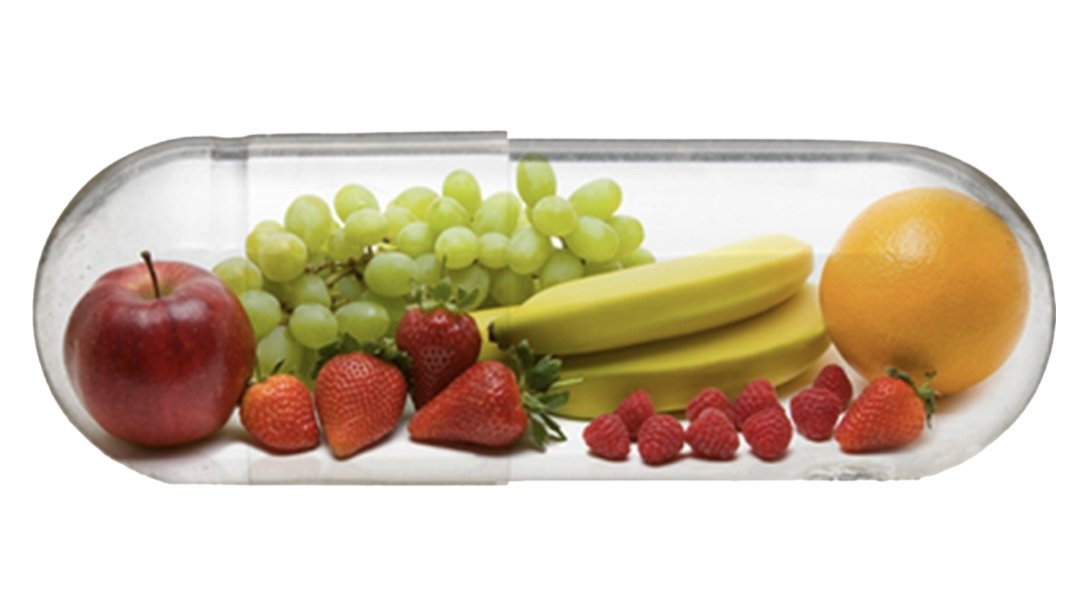Food is(n’t) Medicine
Food and medicine have completely different but important roles in our overall health. This article will unpack the similarities, differences and nuance when discussing these two concepts in the same sentence.
Food should be seen as the compound interest for our health. Small subtle contributions can be very powerful over the course of our life. For that reason it can have a powerful impact on our long term health but it still needs to have separation from medicine. Think of food as a primary prevention strategy. Primary prevention aims to prevent a disease or injury in a healthy population group before they ever occur. This either (1) prevents your exposure to risk or (2) increases your health behaviours to favour positive outcomes. Looking at health from a primary prevention lens, you could also argue that environment, physical activity, income and your parent’s genes are also ‘medicine.’ The quote- “Let food be thy medicine and medicine be thy food” rings most true for preventive health rather than curative.
From the primary prevention perspective, I can agree in part with the argument of food being seen as medicine. I will always advocate for long term health habits through lifestyle nutrition. Small, sustainable health habits can be super powerful as they have the ability to decrease our chronic disease risk. The issue with the statement “Food is Medicine” as a blanket statement is that it pays no respect to the very useful and necessary role that medicine plays in people’s lives. Where medicine really takes over this debate is in the treatment and management of disease. No amount of celery juice is going to cure cancer, regardless of how much you believe it or how much of it you drink. Having too narrow an understanding of the medicine-food dynamic can be a bit like trying to spit on a housefire- a bit useless. Let’s take some big examples of where food just does not cut it for human health outcomes:
-Penicillin: Before penicillin, if you had a serious infection, you did not survive. Watch any TV series before the 1900s and you’ll understand what kind of world we would live in without modern medicine.
-Insulin: This completely changed the lives of people living with diabetes. To live with a condition that now requires small consideration and monitoring. Before insulin was introduced, patients had very restrictive diets as treatment and it still didn’t have the same effect as the medical intervention.
-Anaesthetics and morphine: If you’ve ever undergone surgery or broken a bone, you will be thankful for the medical intervention of these two drugs. Would diet help with a broken bone? Arguably in prevention the years prior. At the time of breaking or trying to fix it? No. Again, without these you’d be back in the 1900s getting a limb sawn off whilst you were still awake watching the procedure.
Here are just another few scenarios where medicine trumps food every single time for treatment: chronic mental health conditions, birth control, Parkinson’s, heart conditions and HIV medicine. Seeing food as medicine shouldn’t ever take the place of proper medical intervention. Let each serve their own purpose.
At the extreme end of thinking food is the only way to cure the body, it can also contribute to an unhealthy relationship with food. When putting food on the same level as medicine, there’s an ability to overstress about macro and micronutrient consumption, demonise certain foods or stress around meal times. One meal will not influence your health as much as long term healthy intake will.
Things food and medicine have in common:
All foods and many medicines are taken orally
Food and medicine can support health
Both can contain some of the same ingredients
You can have allergic reactions to both
Things that are different in food and medicine:
Food isn’t just consumed for its disease risk reduction
Food has an important social & cultural role, medicine is for treatment
Food has long term health impacts, medicine can create instant benefit*.
Food is an individual preference whilst a majority of medicine should only be used under the supervision of a health professional
Nutrition is ongoing for life, whilst some medicine can have brief or temporary use
* some scenarios are a little different in nutrition such as glycemia management for type 1 diabetes.
Bottomline- Food has the ability to reduce chronic disease risk through prevention. Medicine has its own place in treatment and management of disease. While there is nuance in this space, both food and medicine serve a purpose to our overall health and longevity. Food should never take the place of legitimate and necessary medical intervention.

